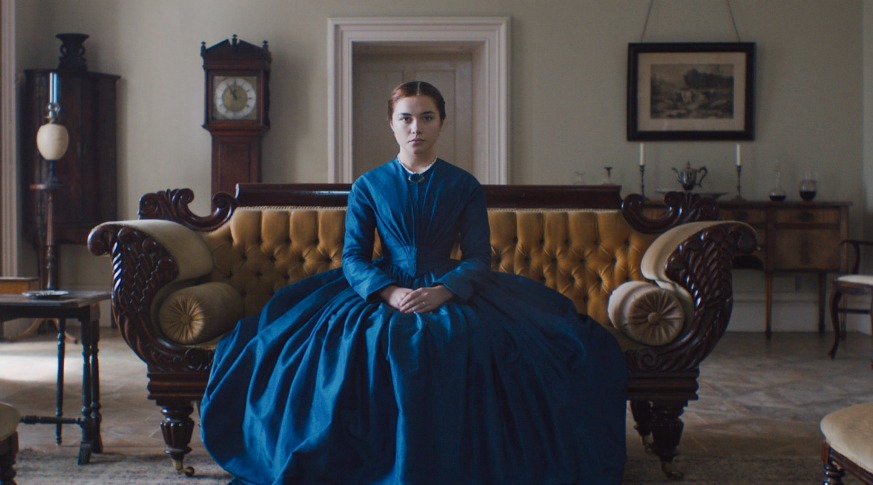‘Lady Macbeth’
Director: William Oldroyd
Stars: Florence Pugh, Cosmo Jarvis
Rating: R
4 (out of 5) Globes
She doesn’t want our pity. Her name is Katherine, and she’s the purchased bride of a loutish, 30-something, 19th century trust fund brat named Alexander (Paul Hilton). His ratfaced asshole of a dad (Christopher Fairbank) bought her to continue the wretched family line, but Alexander has no interest in her. Occasionally he’ll order Katherine to strip to her birthday suit, which she does. But once she’s starkers, he tends to either go to sleep or ’bate while ordering her to face the wall, which she also does.
But again, she doesn’t want our pity. As played by Florence Pugh, she’s the kind of victim who knows how to survive — used to the abuse but far from destroyed. Her face remains steely even during the worst humiliation. She retains her dignity by fighting back just enough that she doesn’t cross a line. It can be a sharpish word back or a defiant stare back — something that can’t get her accused of treason.
Still, when Katherine sees a way out, she seizes it. It starts with usurping control of the house while Alexander is away. Then she takes a lover: one of the more strapping members of the help (Cosmo Jarvis). Eventually, title be damned, “Lady Macbeth” turns less into Shakespeare than into a Victorian “The Postman Always Rings Twice,” complete with Katherine becoming a femme fatale in a corset, and eventually into something worse.
Focused, precise and pitiless, just like its hero, William Oldroyd’s “Lady Macbeth” may be sold as a renegade period piece crossed with a feminist tract. But it’s really neither. It’s a film about power. Loosely drawn from Nikolai Leskov’s “Lady Macbeth of the Mtsensk District,” it methodically paints a bleak picture of the gender and class wars.
It starts off with Katherine as our hero, literally fighting the man. Even early on, though, we can see little signs that the system has already won, has already corrupted everyone from top to bottom. There’s a black maid, Anna (Naomi Ackie), who we can tell very mildly enjoys when she has to lord over Katherine, because that means she has control over someone. When Katherine takes over, she starts by treating Anna as an equal, but it doesn’t take her long to start acting like her superior, and happily so. Oppression is so strong that even its victims vie for a taste of power.
“Lady Macbeth” winds up closer to films like “Okja,” another pessimistic survey of a poisonous society, and “The Beguiled,” in which a macho man’s presence turns women against each other. Even the nicest characters in “Lady Macbeth” (and Katherine is definitely not one of them) are tainted in some way. Films like these — and “The Hateful Eight,” which is even more bleak-o-rama — remind us that inhumane systems flourish because they appeal to the worst in our natures. In “Lady Macbeth,” the only relief from the cold march of doom comes in the form of .gif-able cat cutaways — the kind of unexpected touch that betrays a filmmaker who knows what he’s doing.
Follow Matt Prigge on Twitter @mattprigge



















